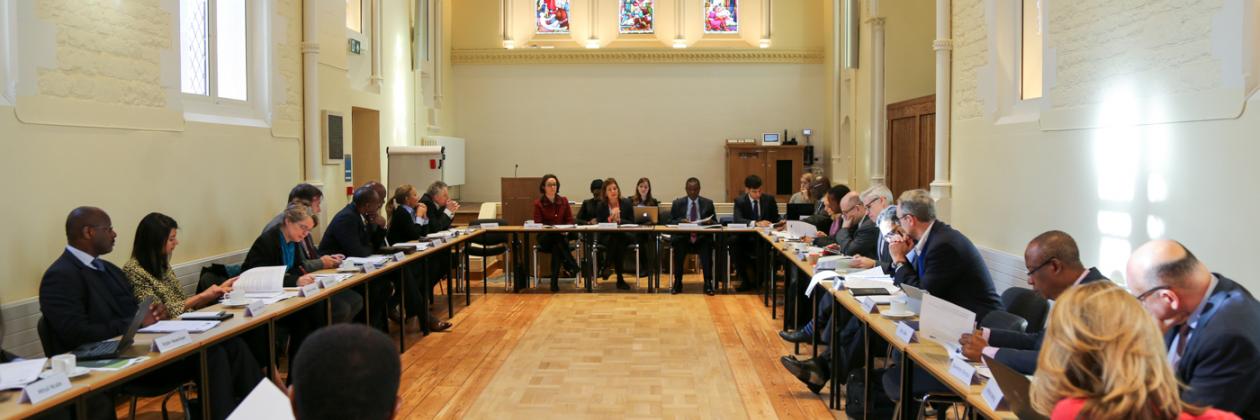Learning from Africa’s mobile banking revolution
Can Africa's mobile banking revolution be consolidated and extended further? Senior government regulators, market participants, leading academics, and selected officials from multilateral organisations came together in February in Oxford to share their experiences of digital financial services in the continent.
Africa’s financial services sector is changing rapidly, led by the digital revolution in information and communications technology, and by the proliferation of banking, insurance, payments systems and other financial institutions.
The high-level roundtable “Consolidating Africa’s mobile banking revolution” was organised by the Global Economic Governance programme and brought together over 40 participants from a variety of countries and sectors to compare experiences, identify challenges and opportunities and distil practical lessons. Two current BSG MPP students with a background in banking and finance also brought their perspective to the event.
Convening the roundtable together with our dean Ngaire Woods and Dr Emily Jones, was Professor Njuguna Ndung’u. The former Governor of the Central Bank of Kenya recently joined BSG as Visiting Fellow of Practice. Professor Ndung’u played a fundamental role in paving the way for the mobile banking revolution in Kenya, the M-Pesa platform. M-Pesa has revolutionised the country’s payments technology, enabling the country to diversify its portfolio of financial services and has had a dramatic impact on financial inclusion. This has effectively changed people’s lives: in 2013, 67% of Kenyans could access formal financial services, up from only 26% in 2006.
Similar initiatives are now underway in other African countries, but not all of them have been successful. It seems that to replicate the Kenyan mobile banking revolution more clarity might be needed, in particular around regulation. Within this context the roundtable discussions addressed the following points:
- Where is the frontier now for mobile banking in Africa?
- Getting the legal framework right
- Regulating new financial services technologies
- Facilitating cross-border payments
- Navigating the political economy of regulation
- Assessing outcomes: monetary policy, financial stability and financial inclusion
Besides encouraging the sharing and exchanging of ideas, the roundtable was also aimed at identifying specific areas for policy-relevant research. In the coming weeks, GEG will publish a report and a policy brief that distils the main policy lessons from the roundtable, and will help advance on the path for stronger financial inclusion in Africa.





